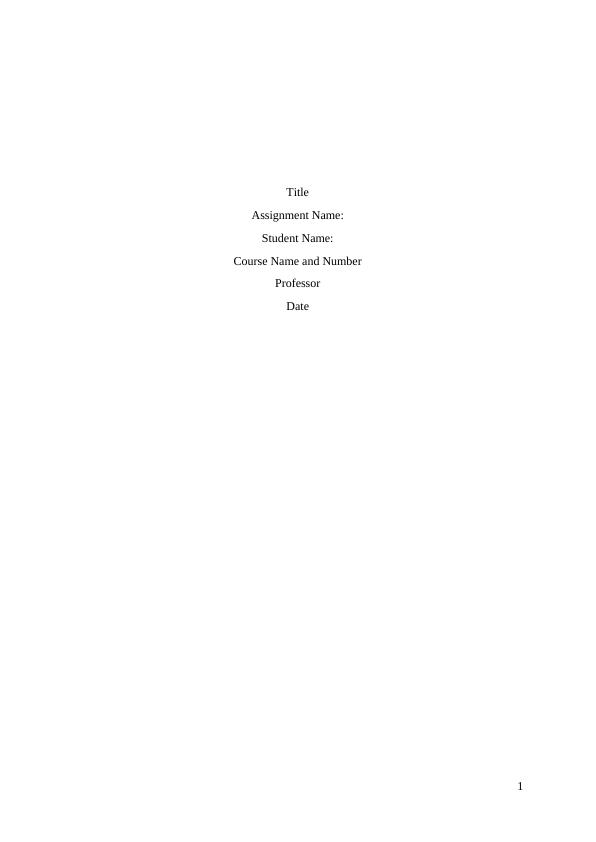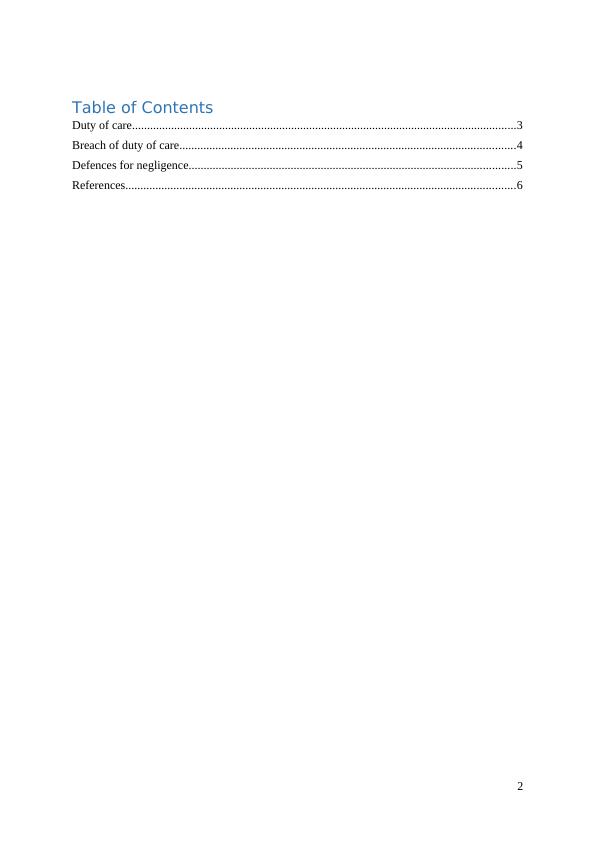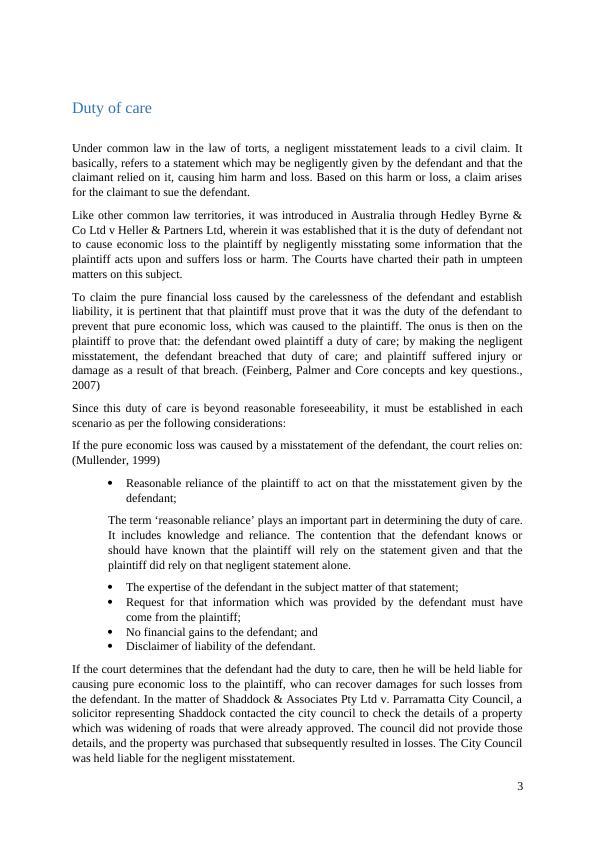Duty of Care, Breach of Duty, and Defences for Negligence
This assignment is about the law of torts, specifically focusing on comparing tort with criminal law and contract law, negligence, duty of care in pure economic loss cases, breach of duty of care, remoteness of damage, and defenses to an action in negligence.
6 Pages1707 Words393 Views
Added on 2023-05-30
About This Document
This text explains the legal aspects of duty of care, breach of duty, and defences for negligence. It discusses the elements of breach of duty of care and the risk factors that determine the standard of care. It also covers the defences available to defendants in cases of negligence. The text cites relevant case law and legislation to provide a comprehensive guide to the subject.
Duty of Care, Breach of Duty, and Defences for Negligence
This assignment is about the law of torts, specifically focusing on comparing tort with criminal law and contract law, negligence, duty of care in pure economic loss cases, breach of duty of care, remoteness of damage, and defenses to an action in negligence.
Added on 2023-05-30
ShareRelated Documents
End of preview
Want to access all the pages? Upload your documents or become a member.
Law of Negligence Enterprise Law
|4
|602
|38
Corporations Law Case Study Analysis
|24
|6303
|302
Business Law
|6
|1426
|45
Can Jack Smith sue Dandenong Council for pure economic loss caused due to negligence?
|5
|1308
|424
Introduction to Business Law | Assignment-1
|4
|1585
|11
Assignment Introduction To Business Law
|8
|1613
|77



